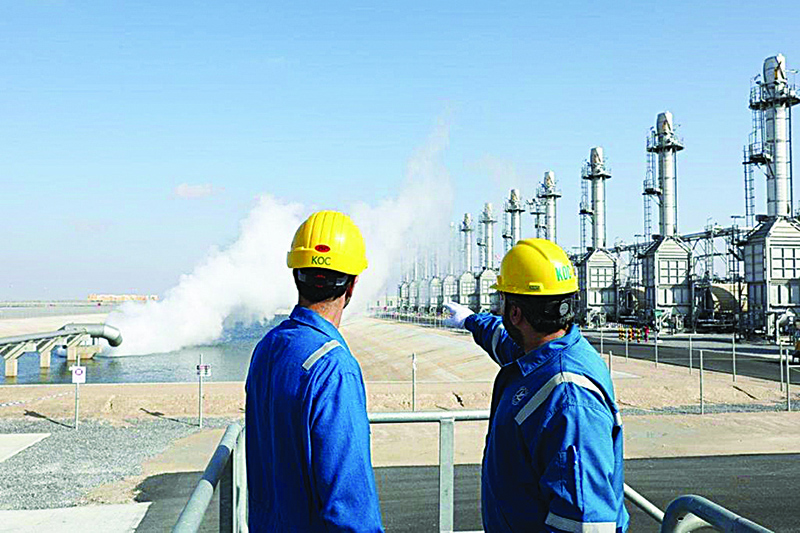

KUWAIT: Kuwait Oil Company’s (KOC) heavy oil project in Ratqa oil field, northern Kuwait, is a vital addition to the country’s economy, and part of the company’s 2040 vision. KOC’s biggest project will boost oil production, increase Kuwait’s income and provide different products to international markets. It will also allow Kuwait’s oil field to enter new markets and create new job opportunities for youth, despite the challenges of extracting heavy oil.
KOC’s CEO Emad Sultan said that May 22 was a remarkable day as the company shipped its first heavy oil shipment to global markets. The first shipment included 500,000 barrels, while the second one in June included 700,000 barrels, he said. The project is KOC’s most challenging operation which will meet Kuwait’s energy needs.
Heavy oil was first discovered in 1979 in south Ratqa and the company conducted two production programs in 1982 and 1984, however operations stopped due to the Iraqi Invasion in 1990, before resuming in 2006, he noted. The first phase of the project includes producing 60,000 barrels per day (bpd) from south Ratqa, and later producing environmental, low sulfur fuel in new Al-Zour refinery to use it in power stations.
The CEO said that KOC has been running tests on extracting and producing heavy oil since 2007, aiming to tackle difficulties facing the process. In 2015, the company signed a contract to build the facility in south Ratqa field, he added. The project included digging 1,518 oil wells, with 930 wells in the first phase, Sultan said. In addition to producing 60,000 bpd, the facility has the capacity to produce 22 million square foot of associated petroleum gas and 170,000 water barrels, he noted. The project also included building a storage capacity for 300,000 oil barrels, as well as another storage area with a capacity of 1,200 million barrels in the exporting section. The project started operating in the second half of 2019, while production started on February 24, 2020, said the CEO.
By end of May, the project reached a production capacity of 38,000 bpd and it is expected to reach the target rate of 60,000 by next September. This number will be added to production of 15,000 bpd of heavy oil in Umm Niqa field north Kuwait, which had been operating since 2016, as the total number will become 75,000 bpd. Meanwhile, Sultan hailed the efforts of KOC and Kuwait Petroleum Corporation (KPC) in marketing heavy oil in international markets, despite the challenges facing offer and demand due to the coronavirus. Heavy oil production is filled with challenges, yet, it also provides so many great opportunities including lowering capital costs on production and creating cooperation with the biggest global oil companies, he explained. KOC was established in 1934 and is a subsidiary of KPC. The company is tasked with oil and natural gas exploration and production. —KUNA











